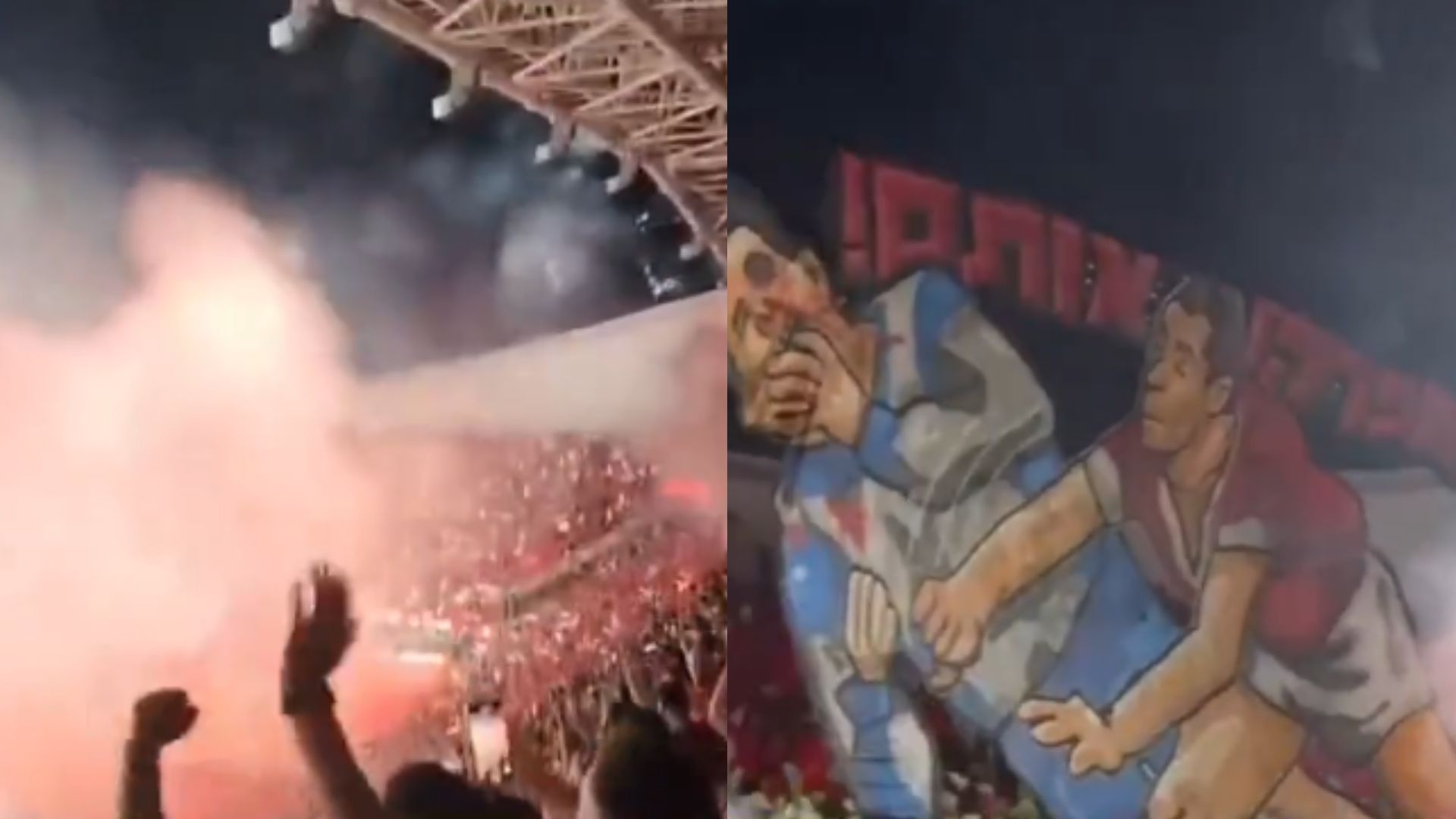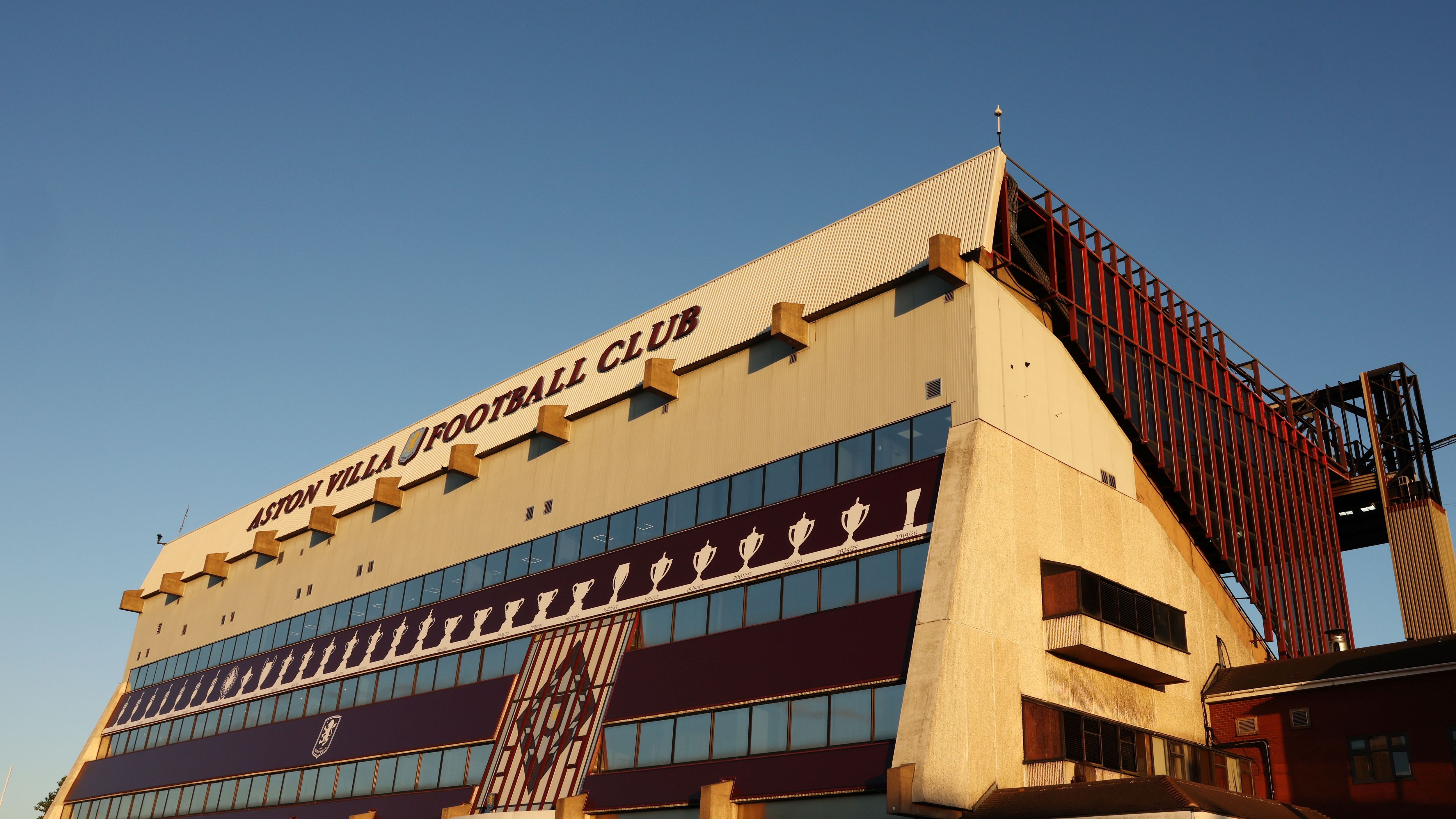

Explosive Fan Clashes Derail Tel Aviv Derby Showdown
In the midst of escalating tensions surrounding football rivalries, the Tel Aviv derby faced abrupt cancellation due to violent riots that posed grave risks to attendees, just days after Maccabi fans were barred from their Europa League encounter against Aston Villa. This incident highlights the growing concerns over fan behavior in high-stakes matches, drawing attention to the broader implications for international competitions and public safety.
Escalating Turmoil at Bloomfield Stadium
The chaotic scenes unfolded as spectators unleashed a barrage of smoke grenades and fireworks, compelling authorities to terminate the event entirely. This drastic measure stemmed from widespread violent riots that disrupted the proceedings, according to officials. Reports indicate that several individuals, including three law enforcement personnel and five attendees, sustained injuries from the pyrotechnics. Additionally, the local district leader, Haim Sargof, emphasized that prioritizing security meant no alternative existed but to delay the fixture amid rising threats.
Details of the Disorder and Damage
Footage from within the venue revealed the playing field shrouded in a haze of red and white fumes from the explosives, with fans from both sides actively hurling flares and other projectiles. Estimates suggest that over 50 such items were directed toward the pitch, alongside stones lobbed from the audience areas. This not only compromised the integrity of the stadium but also turned what should have been a thrilling Tal Aviv derby into a scene of significant unrest.
Player Safety and Official Interventions
Prior to the formal declaration of postponement, athletes from Maccabi and Hapoel were swiftly escorted to secure areas as the situation deteriorated. The official word came around 8:50 pm locally, roughly 20 minutes past the intended start time. A representative from the police force described the events as far beyond typical game-day excitement, labeling it a “major breach of public order involving assaults and destruction.”
Police Statement on the Crisis
In response to the hazards created by the crowd’s actions, law enforcement notified all parties involved-including team officials and referees-that the match could not proceed. They urged everyone present to stay put for a controlled exit, stressing the need to avoid further chaos and protect lives.
League Response and Future Uncertainties
The governing body for professional football in Israel subsequently announced an indefinite suspension of the game, leaving the rescheduled date unresolved. Extensive preparations had been underway for this highly awaited local clash, which had generated buzz among 25,000 fans eager for a rivalry renewed after more than a year.
Broader Context of Fan Restrictions
This episode in Tel Aviv follows closely on the heels of restrictions preventing Maccabi supporters from attending their Europa League fixture in England against Aston Villa on November 6. British authorities are actively seeking ways to reverse this ban, with ongoing discussions focused on bolstering security measures in Birmingham to facilitate fan attendance.
Pressures on Safety Committees
The local Safety Advisory Group in the city imposed the travel prohibition, yet they are under increasing scrutiny to devise a workable solution allowing fans access to Villa Park. An upcoming meeting is anticipated to address these issues head-on.
Governmental Stances and Commitments
A spokesperson from the Home Office affirmed that barring individuals from events based on their identity is unacceptable, with initiatives underway to guarantee the Europa League match proceeds securely for all. Meanwhile, Energy Secretary Ed Miliband conveyed to media outlets that while guarantees cannot be made unconditionally, officials are diligently pursuing options to remove the travel barriers through consultations with various stakeholders.
Background of the Tel Aviv Derby
When we talk about intense rivalries in football, the Tel Aviv Derby stands out as one of the most passionate and heated in Israeli football. This clash typically pits teams like Maccabi Tel Aviv against Hapoel Tel Aviv, drawing fans from across the city and beyond. The derby isn’t just a game; it’s a cultural event that reflects deep-seated community pride, historical tensions, and even political undertones. For years, these matches have been known for their electric atmosphere, but unfortunately, they’ve also been marred by occasional fan violence, which has raised serious concerns about safety in football.
In recent times, the Tel Aviv Derby has become a focal point for discussions on how to manage fan behavior while preserving the sport’s excitement. Keywords like “Tel Aviv Derby violence” and “Maccabi Tel Aviv fan bans” have surged in searches as people seek to understand the broader implications for Israeli football and international competitions.
The Ban on Maccabi Fans and Its Connection to the Europa League
Leading up to the latest controversy, European football authorities imposed a ban on Maccabi Tel Aviv fans attending their Europa League match against Aston Villa. This decision stemmed from a history of disruptive behavior, including incidents where fans were involved in clashes that endangered lives. The Europa League match, a high-stakes encounter for Maccabi Tel Aviv, highlighted growing concerns about fan safety in international fixtures.
The ban was a direct response to previous events, such as thrown objects and pitch invasions during away games. According to football governing bodies, allowing fans to travel could exacerbate tensions, especially with the Tel Aviv Derby on the horizon. This measure aimed to prioritize player and spectator safety, but it only fueled frustrations among supporters. Search terms like “Maccabi fans Europa League ban” reflect the public’s interest in how such decisions affect team morale and performance.
- Key reasons for the fan ban:
- Repeated reports of violent incidents at matches.
- Potential for clashes with opposing fans, such as those from Aston Villa.
- Efforts by UEFA to enforce stricter crowd control measures in high-risk games.
Escalation to Violent Riots Endangering Lives
Things took a dramatic turn when the ban on Maccabi fans spilled over into widespread unrest. In the days following the Europa League announcement, pockets of Tel Aviv saw violent riots erupt, with protests turning chaotic. Fans gathered in public squares, clashing with police and each other, leading to injuries, property damage, and even arrests. Eyewitness accounts described scenes of burning effigies, thrown projectiles, and blocked roads, all centered around the frustration of being excluded from key matches.
This escalation wasn’t isolated; it highlighted a larger issue of fan culture in football, where emotions can quickly spiral out of control. The riots were particularly alarming because they directly threatened public safety, prompting local authorities to deploy additional security forces. If you’re following football news, you’ve probably noticed how keywords like “violent riots in Tel Aviv” and “endangering lives in football” have dominated headlines, drawing attention to the need for better conflict resolution strategies.
- Major incidents during the riots:
- Clashes near stadiums involving hundreds of protesters.
- Reports of minor injuries to police officers and fans.
- Social media videos going viral, amplifying the “Tel Aviv Derby canceled” narrative.
The Cancellation of the Tel Aviv Derby Match
With riots still fresh in everyone’s minds, organizers had no choice but to cancel the upcoming Tel Aviv Derby. This decision, made in consultation with football leagues and security experts, was a stark reminder of how fan violence can disrupt the sport we all love. The cancellation meant lost revenue, disappointed supporters, and a pause in the league schedule, but the priority was clear: protecting lives.
Football associations emphasized that postponing or canceling matches is sometimes necessary to prevent further escalation. In this case, the ban on Maccabi fans for the Aston Villa game acted as a catalyst, showing how international competitions can influence domestic rivalries. Readers searching for “Tel Aviv Derby cancellation reasons” will find that this event underscores the interconnectedness of global and local football dynamics.
- Factors leading to the cancellation:
- Heightened security risks from ongoing protests.
- Advice from law enforcement to avoid large gatherings.
- Precedent set by similar incidents in European football, like fan bans in other derbies.
Impact on Football Safety and Future Regulations
The events surrounding the Tel Aviv Derby have sparked conversations about improving safety protocols in football. Authorities are now exploring stricter fan vetting, designated safe zones at stadiums, and even psychological support for supporters to address underlying tensions. For clubs like Maccabi Tel Aviv, this means adapting to new rules while maintaining their competitive edge in the Europa League.
This situation also raises questions about how bans on fans affect team performance and fan engagement. By incorporating keywords like “football fan safety measures” naturally, we’re seeing a shift towards more proactive approaches in sports management. It’s a reminder that while football is about passion, it must always prioritize well-being.
- Potential long-term changes:
- Enhanced surveillance at high-risk matches.
- Collaborations between clubs and community leaders to foster positive fan culture.
- Increased focus on educating fans about the dangers of violence.
In discussions around “Aston Villa vs Maccabi Tel Aviv fallout,” experts are pushing for reforms that could make football safer without dimming its spirit. This ongoing dialogue is crucial for the future of the sport, ensuring that events like the Tel Aviv Derby can return as celebrations rather than crises.









